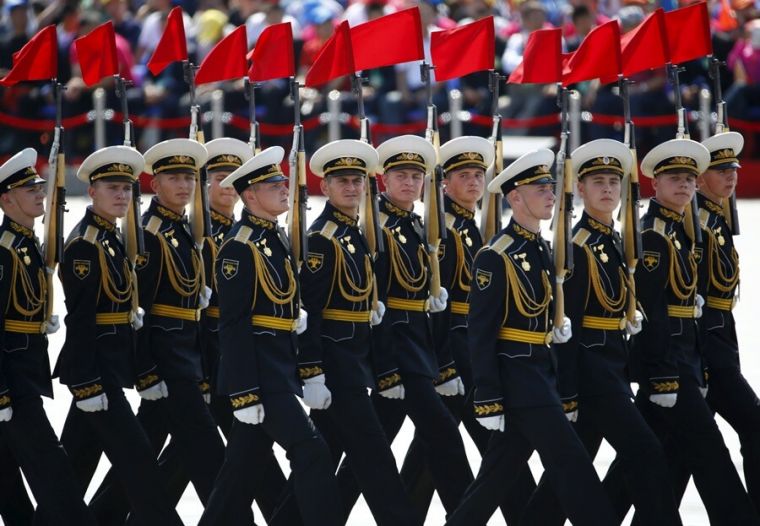Red Bear rising once again: US prepares response to possible Russian aggression

When the Soviet Union collapsed in 1991, the United States, particularly the Department of Defense, reportedly set aside its military plans to deal with a possible Russian aggression. At that time, the US viewed the Russian Bear as a potential partner.
Over two decades after the fall of the Soviet Union, the dynamics between the US and Russia have once again changed. After Russia's annexation of Crimea last year, the US now sees Russia as a potential threat.
This is why the Pentagon is now revisiting and updating the US government's contingency plans in case of an armed conflict with Russia, an exclusive report from Foreign Policy Magazine said.
A senior defence official familiar with the plans, who spoke on condition of anonymity, told Foreign Policy Magazine that updating the military plans towards Russia has become one of the Pentagon's priorities.
"Given the security environment, given the actions of Russia, it has become apparent that we need to make sure to update the plans that we have in response to any potential aggression against any NATO [North Atlantic Treaty Organisation] allies," the defence official said.
Michèle Flournoy, a former undersecretary of defence for policy and co-founder of the Center for a New American Security, meanwhile said the Russian annexation of Crimea changed the complexion of the relations between US and Russia.
"Russia's invasion of eastern Ukraine made the US dust off its contingency plans. They were pretty out of date," Flournoy said.
The unnamed senior official also revealed that the Pentagon is particularly preparing contingencies on possible Russian incursions into the Baltics.
The contingencies, he said, focused on two tracks: what the United States can do as part of NATO if Russia attacks another NATO member-state, and American action outside the NATO umbrella.
Julie Smith, who until recently served as the vice president's deputy national security advisor, for her part said the Pentagon is likely not just focusing on traditional warfare to prepare for potential Russian aggression.
"They are trying to figure out in what circumstances [the US Defense Department] would respond to a cyberattack," Smith said.











